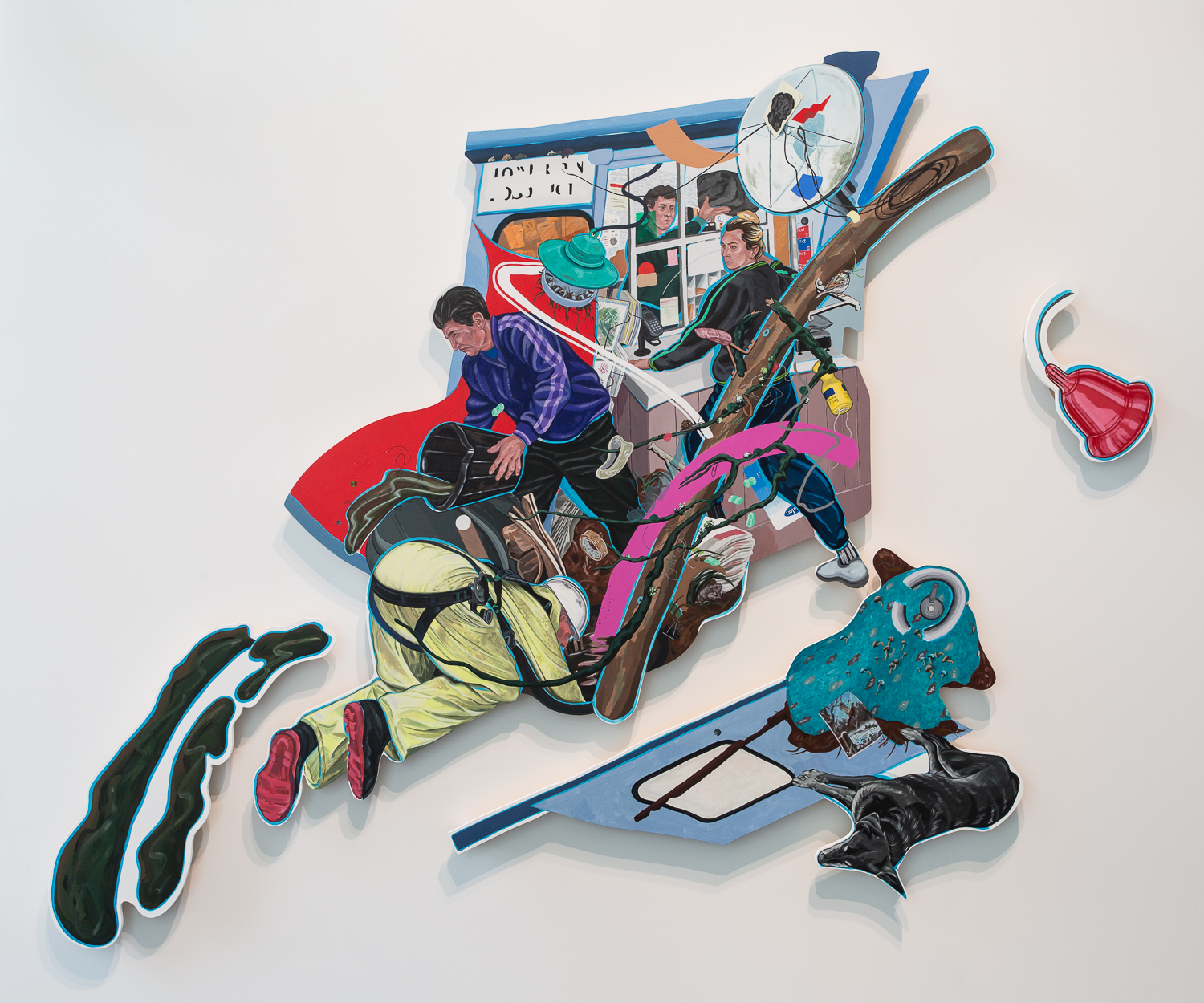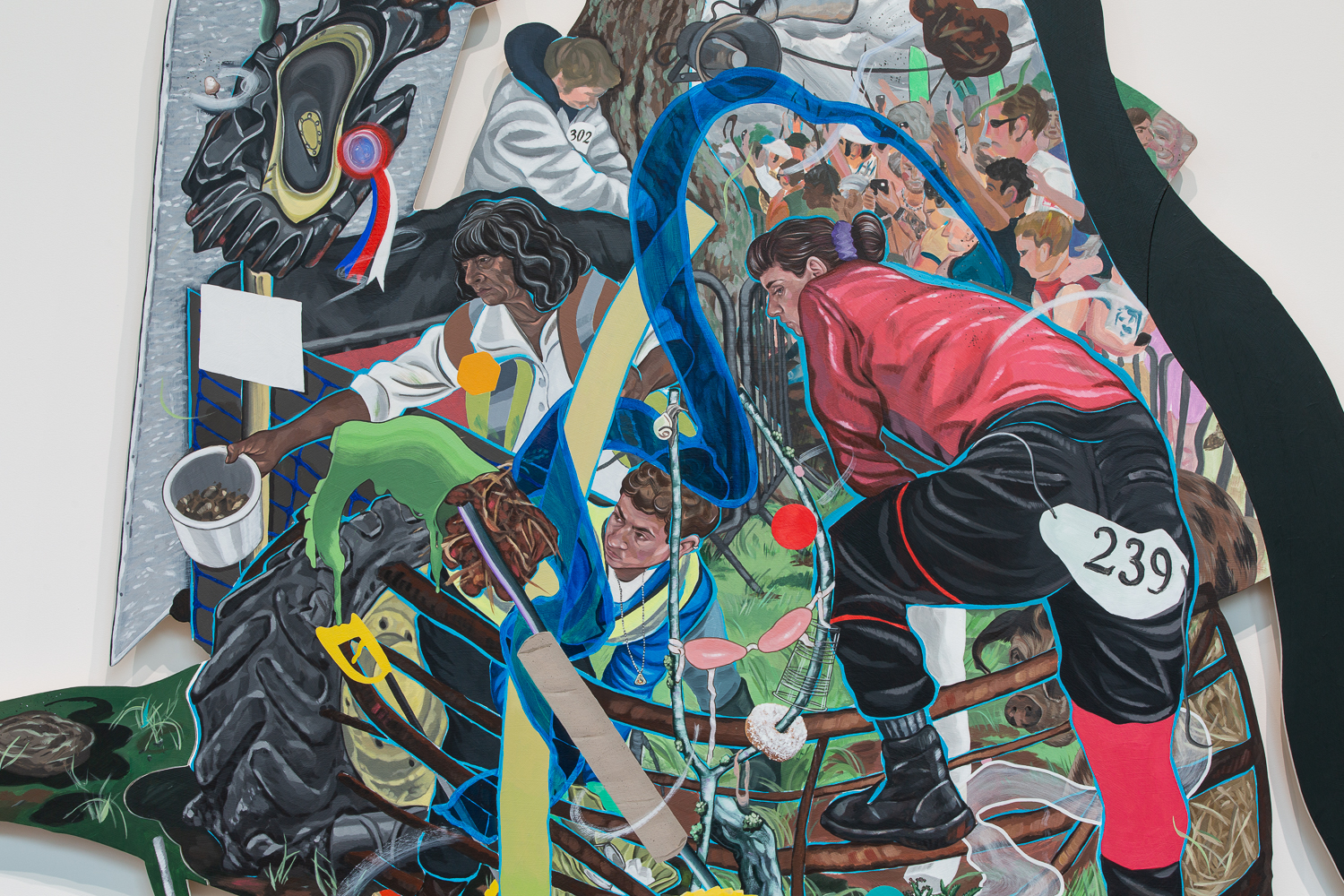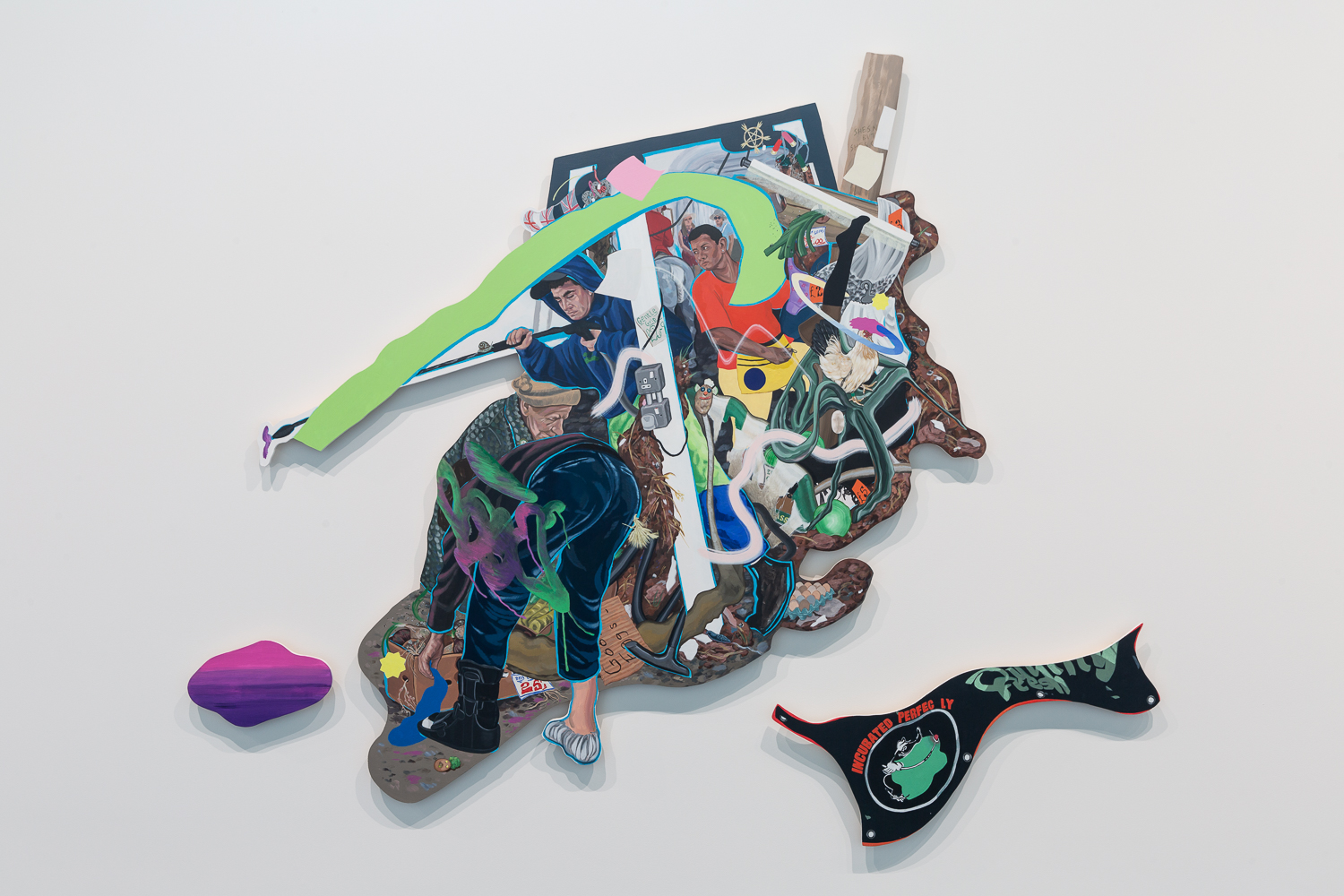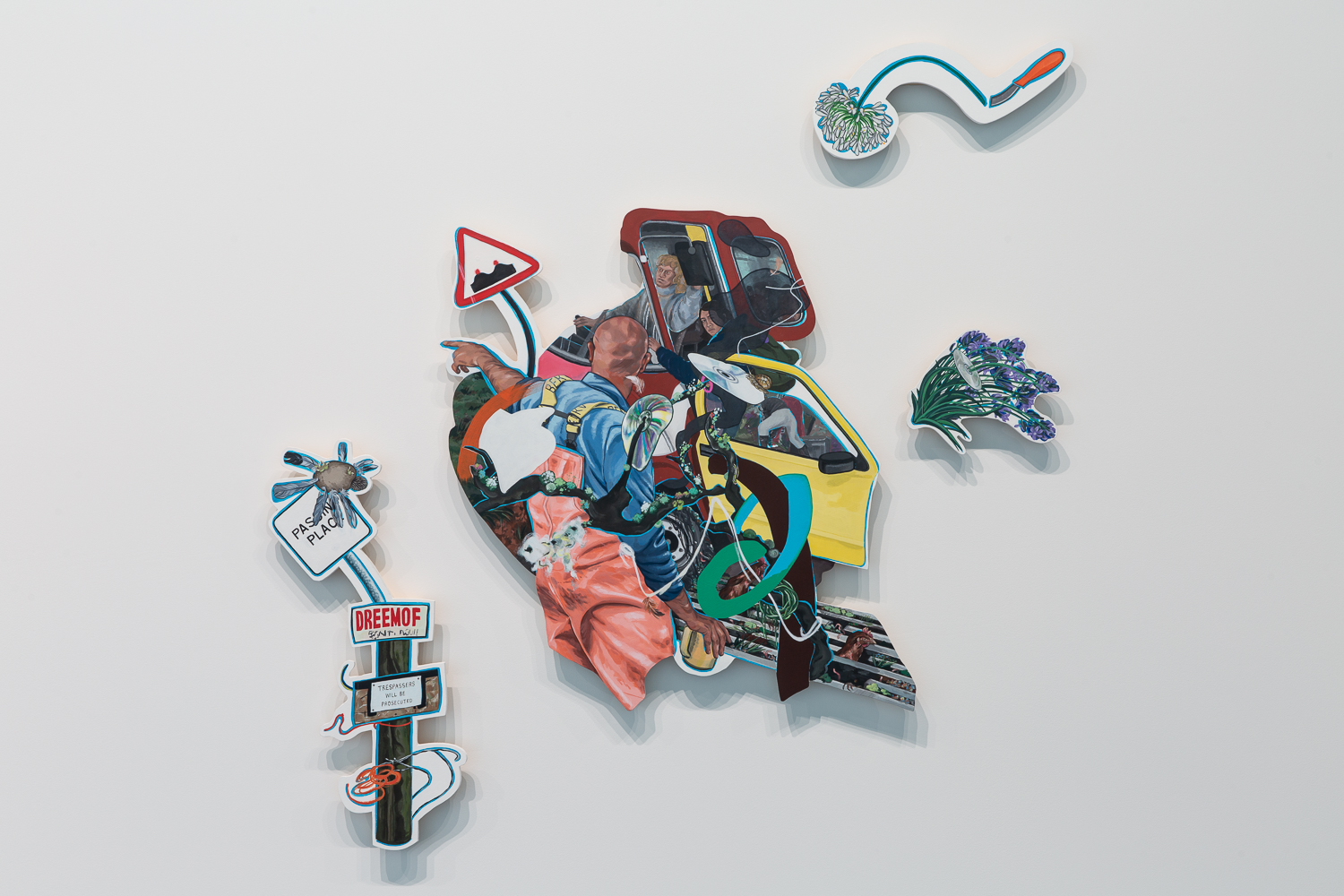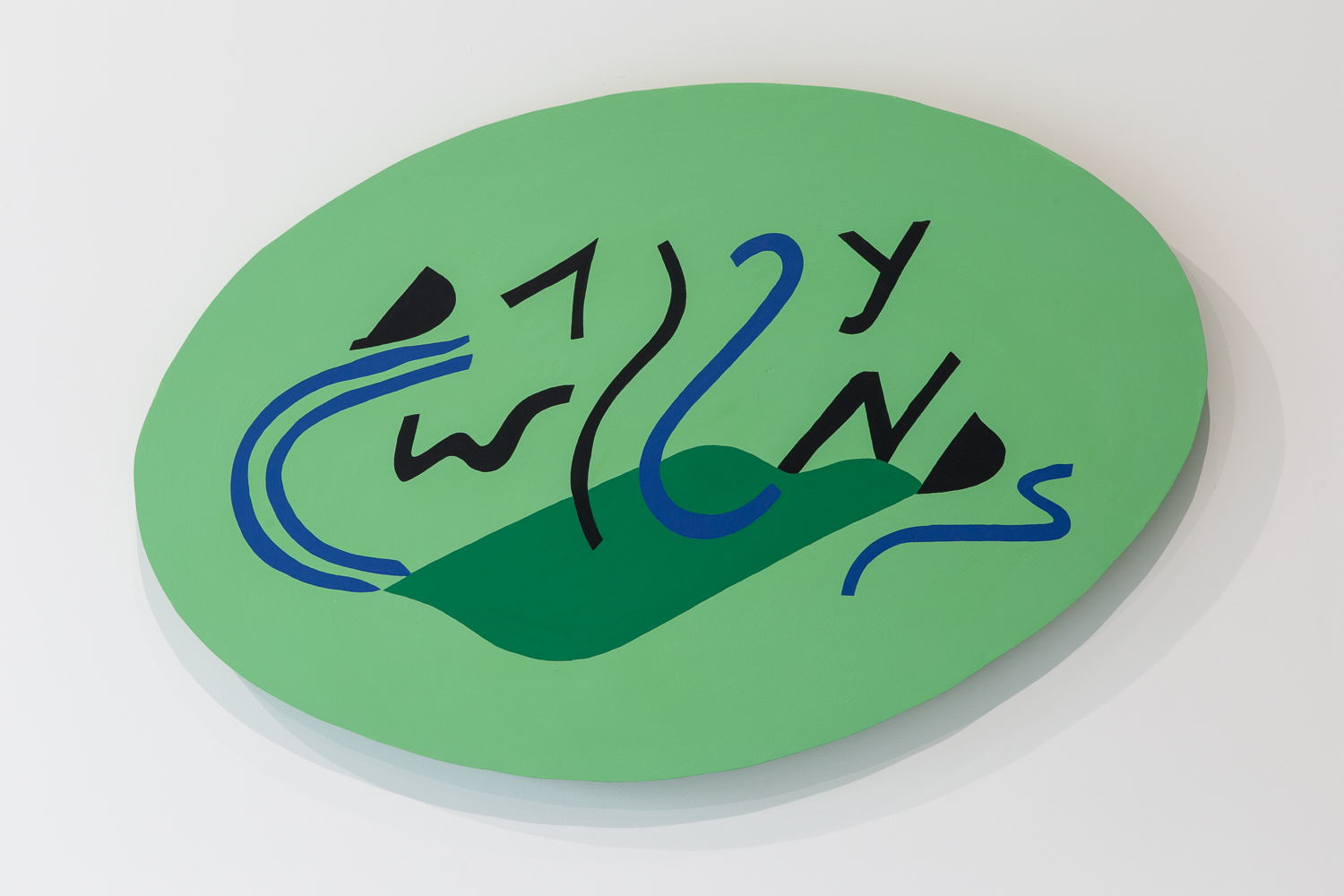Flo Brooks
Angletwich
12.00 – 5pm
Book your free exhibition entry here
Flo Brooks’ practice encompasses painting, sculpture, collage, publishing and social engagement. For this major new commission with Brighton CCA, Brooks has expanded the scope of his work to present this suite of paintings within a sculptural installation for the first time. The title of the show, Angletwich, takes its name from a Devonshire dialect term for a worm used in fishing bait, but has evolved to describe a fast moving creature or child. It speaks to the frenetic layering of people and activity within the works as well as recurrent motifs of migration and the makeshift.
In weaving together this semi autobiographical narrative of queer and trans experience, Brooks has turned to the rural South West England where he grew up and in particular its marginalised spaces and communities. These new works centre on a series of rural archetypes; from the livestock fair and the post office, to a lonely bus stop, generating a simultaneous sense of familiarity and isolation. Each work in the exhibition is part of a wider whole; depicting characters, scenes and places which together develop a critical narrative of place and queer experience in Britain. The installation mirrors the environments found within the work, creating a dramatic context to more closely connect the world of Brooks’ painting with the experience of encountering them.
Brooks says
It feels fundamental to think critically about the ways we connect with each other, and what this might look like in our own lives. I make sense of things through lived experience, through intimate relationships and the communities I’m a part of, whether that’s the rural community I grew up in, queer and trans communities, art networks or my blood family
Individually and as a group, the works articulate a powerful dichotomy between frenetic bouts of activity and a kind of stasis. Farmers, market stall sellers, drivers and council workers are layered up, surrounded by a chaotic jumble of vernacular rural materiality, waste and architecture; swirls of rubber tyres, broken chairs, fires, blocked sewers and falling telegraph poles. These images, filled with such latent dramatic narrative, are also shot through with a sense of slow time, of waiting as life stalls or perhaps continues elsewhere. As Brooks comments of this series ‘I mostly painted people looking exhausted and hypervigilant, always searching for something’.
How might it be possible to feel so acutely a sense of belonging and dislocation? The presence and absence of community and concepts of care, informed by Brooks’ experience as a queer and trans person who grew up in the countryside is at the heart of this narrative; questioning perceptions based on assumption and received understanding over direct experience.
Thinking this through within the work, Brooks makes a distinction between what is familiar and what is understood, between the idea of a life and a lived experience. In this way the works give us both an unsentimental view of contemporary rural life and the case for more careful approach to the people and places that surround us.
THE DAILY WINDS TOURIST INFORMATION CENTRE
In the North Gallery is the Daily Winds Tourist Office. Over the summer, Brooks invited a group to share thoughts and experiences of the rural, through Daily Winds, a bi monthly community newsletter. These conversations and contributions have come together within a fictionalized tourist office presenting artworks and ephemera, distributing information, and hosting socially distanced events.
The space and public programme offer visitors the opportunity to both explore their own perception of the rural and the locality of Brighton, as well as encounter alternative understandings of rural life via talks, workshops, texts, films and performance.
This exhibition builds on solo presentations at Cubitt (2017) and Project Native Informant (2018) and will travel to Tramway, Glasgow (Autumn 2021)
